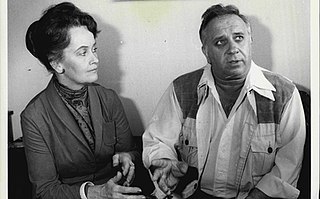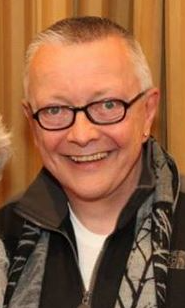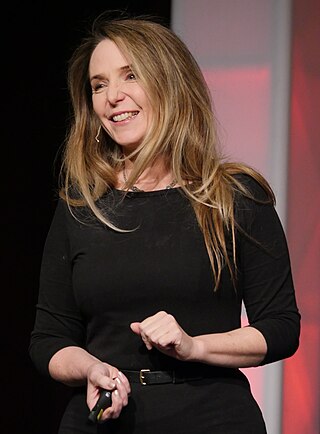
The Committee for Skeptical Inquiry (CSI), formerly known as the Committee for the Scientific Investigation of Claims of the Paranormal (CSICOP), is a program within the U.S. non-profit organization Center for Inquiry (CFI), which seeks to "promote scientific inquiry, critical investigation, and the use of reason in examining controversial and extraordinary claims." Paul Kurtz proposed the establishment of CSICOP in 1976 as an independent non-profit organization, to counter what he regarded as an uncritical acceptance of, and support for, paranormal claims by both the media and society in general. Its philosophical position is one of scientific skepticism. CSI's fellows have included notable scientists, Nobel laureates, philosophers, psychologists, educators, and authors. It is headquartered in Amherst, New York.
Skeptical Inquirer is a bimonthly American general-audience magazine published by the Committee for Skeptical Inquiry (CSI) with the subtitle: The Magazine for Science and Reason.
Scientific skepticism or rational skepticism, sometimes referred to as skeptical inquiry, is a position in which one questions the veracity of claims lacking empirical evidence. In practice, the term most commonly references the examination of claims and theories that appear to be beyond mainstream science, rather than the routine discussions and challenges among scientists. Scientific skepticism differs from philosophical skepticism, which questions humans' ability to claim any knowledge about the nature of the world and how they perceive it, and the similar but distinct methodological skepticism, which is a systematic process of being skeptical about the truth of one's beliefs.
A debunker is a person or organization that exposes or discredits claims believed to be false, exaggerated, or pretentious. The term is often associated with skeptical investigation of controversial topics such as UFOs, claimed paranormal phenomena, cryptids, conspiracy theories, alternative medicine, religion, or exploratory or fringe areas of scientific or pseudoscientific research.

Within ghost hunting and parapsychology, electronic voice phenomena (EVP) are sounds found on electronic recordings that are interpreted as spirit voices. Parapsychologist Konstantīns Raudive, who popularized the idea in the 1970s, described EVP as typically brief, usually the length of a word or short phrase.

Ghost Hunters is an American paranormal and reality television series. The original series aired from October 6, 2004 until October 26, 2016 on Syfy. The original program spanned eleven seasons with 230 episodes, not including 10 specials. The series was revived in early 2019 and aired its twelfth and thirteenth seasons from August 21, 2019, to May 27, 2020, on A&E, after which it was cancelled and then revived for its fourteenth season only months later on Discovery+, which started airing on October 31, 2021. Season 15 began October 1, 2022 on Travel Channel. Season 16 of Ghost Hunters is set to release on Travel Channel on April 6, 2023.

Edward Warren Miney and Lorraine Rita Warren were American paranormal investigators and authors associated with prominent cases of alleged hauntings. Edward was a self-taught and self-professed demonologist, author, and lecturer. Lorraine professed to be clairvoyant and a light trance medium who worked closely with her husband.

Spirit photography is a type of photography whose primary goal is to capture images of ghosts and other spiritual entities, especially in ghost hunting. It dates back to the late 19th century. The end of the American Civil War and the mid-19th Century Spiritualism movement contributed greatly to the popularity of spirit photography. Photographers such as William Mumler and William Hope ran thriving businesses taking photos of people with their supposed dead relatives. Both were shown to be frauds, but "true believers", such as Sir Arthur Conan Doyle, refused to accept the evidence as proof of a hoax.

Ghost hunting is the process of investigating locations that are reported to be haunted by ghosts. Typically, a ghost-hunting team will attempt to collect evidence supporting the existence of paranormal activity. Ghost hunters use a variety of electronic devices, including EMF meters, digital thermometers, both handheld and static digital video cameras, including thermographic and night vision cameras, night vision goggles, as well as digital audio recorders. Other more traditional techniques are also used, such as conducting interviews and researching the history of allegedly haunted sites. Ghost hunters may also refer to themselves as paranormal investigators.
The New England Skeptical Society (NESS) is an American organization dedicated to promoting science and reason. It was founded in January 1996 as the Connecticut Skeptical Society, by Steven Novella, Perry DeAngelis and Bob Novella. The group later joined with the Skeptical Inquirers of New England (SINE) and the New Hampshire Skeptical Resource to form the New England Skeptical Society. The society publishes The Skeptics' Guide to the Universe, a science and skepticism podcast.

Benjamin Radford is an American writer, investigator, and skeptic. He has authored, coauthored or contributed to over twenty books and written over a thousand articles and columns on a wide variety of topics including urban legends, unexplained mysteries, the paranormal, critical thinking, mass hysteria, and media literacy. His book, Mysterious New Mexico: Miracles, Magic, and Monsters in the Land of Enchantment, was published in the summer of 2014 and is a scientific investigation of famous legends and folklore in the state of New Mexico. In 2016 Radford published Bad Clowns, a 2017 IPPY bronze award winner, and he is regarded as an expert on the bad clowns phenomenon.

NZ Skeptics is a New Zealand incorporated society created in 1986, with the aim of promoting critical thinking. The main areas of interest to the NZ Skeptics are claims of psychic abilities, alternative medicine, creationism and other pseudoscientific claims. At its founding in 1986, it was known as the New Zealand Committee for the Scientific Investigation of Claims of the Paranormal (NZCSICOP). In 2007 the name was formally changed to NZ Skeptics Incorporated.

The Association for the Scientific Study of Anomalous Phenomena (ASSAP) is a United Kingdom-based learned society, education and research charity, dedicated to scientifically investigate alleged paranormal and anomalous phenomena, with a view to approaching the subject in its entirety rather than looking into the psychology of individual phenomenon. They also hold training days for would-be investigators and provide research grants.

Chip Coffey is an American self-proclaimed psychic from Elmira, New York, currently living in Atlanta, Georgia. He appeared as a medium on various paranormal television programs, primarily Paranormal State and Psychic Kids. On Psychic Kids he acts as a mentor towards children who claim to have psychic abilities, primarily seeing ghosts. Coffey's claims of being able to communicate with the dead have been subject to criticism by skeptics. In 2019 it was announced that Coffey will be joining Travel Channel's Kindred Spirits as the third official cast member alongside Adam Berry and Amy Bruni for the fourth season in 2020.

Franklin House in Franklin Village, near Launceston, Tasmania, is a historic house that is preserved by Tasmania's National Trust and is open to the public. Built in 1838 for Britton Jones, it later became a school for boys.

Susan Gerbic is an American studio photographer who became known as a scientific skepticism activist, mostly for exposing people claiming to be mediums. A columnist for Skeptical Inquirer, she is the co-founder of Monterey County Skeptics and a fellow of the Committee for Skeptical Inquiry.

The Association for Skeptical Enquiry (ASKE) is a skeptical organisation in the United Kingdom.

Deborah Hyde is a British sceptic, folklorist, cultural anthropologist, Ufologist, fellow of the Committee for Skeptical Inquiry, and editor-in-chief of The Skeptic. She writes and lectures extensively about superstition, cryptozoology, religion and belief in the paranormal, with special regard to the folklore, psychology and sociology behind these phenomena, and has been introduced as a "vampire expert". Hyde has also worked in the motion picture industry.


















